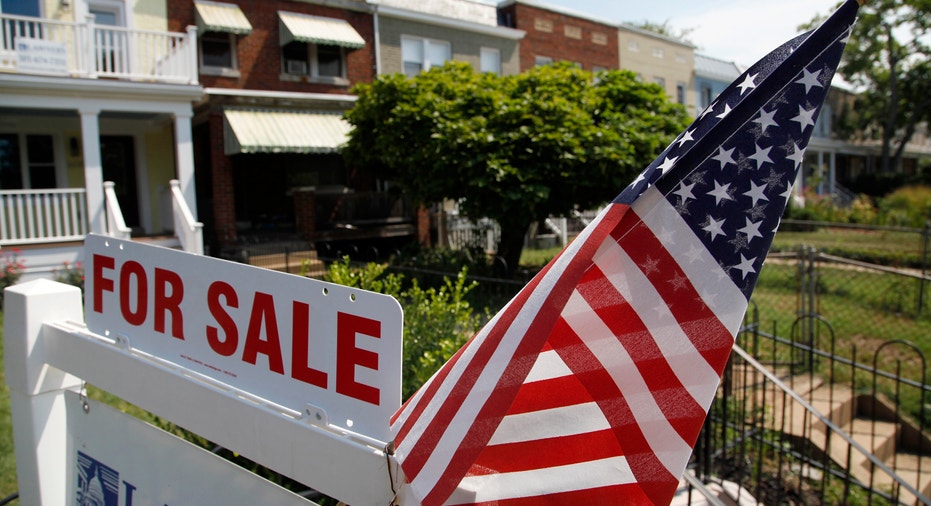Real World Impacts of Growing Student Loan Debt

With the cost of tuition, loan delinquencies and student debt all on the rise, millennials aren’t able to enter the housing market at the same age as their predecessors, which is having a ripple effect throughout the market and could have long-lasting consequences.
A report from the International Institute of Finance (IIF), shows people under the age of 30 can’t afford to become homebuyers, which are negatively impacting housing prices and could disrupt the slow-burning economic recovery.
College tuition costs are increasing ten-times as fast as food housing and health-care, according the IIF, and for the first time ever in 2012, outstanding debt topped $1 trillion, increasing by four times its amount since 2003. The study also shows nearly 20% of U.S. households have outstanding student debt, compared to 16% in 2007. In addition, the average wage for workers in the 25-to-34-year-old age group also decreased by 10%.
Housing Market Effects
The immediate impact of young adults skipping homeownership is a fuller rental market and fewer home owners, says Patrick Newport, IHS Global Insight economist.
“Student debt will affect the home ownership rate, which may drop in the next three or four years to levels last seen in the 1960s.”
In turn, rental prices will rise--particularly in big cities--as demand increases. More multi-unit homes will be built to meet this demand for rental units as well, he says.
In the past, college grads made up a largest portion of the first-time-homebuyers group, however the high debt they carry and their low wages make accessing a mortgage difficult, the IIF reports.
The trend will negatively impact the economy, according to William Delwiche, investment strategist at private equity firm Robert J. Baird and Co., because this group is holding back on major life purchases such as home investments.
“It decreases the vibrancy of the economy and decreases the recovery. The impact is more cumulative.” he says.
The Real World Impact of Debt
Rutgers University recently found 40% of students graduating from a four-year college with debt have delayed big-ticket purchases, which is bad for the economy since consumer spending makes up a significant portion of the country’s gross domestic product.
“These college graduates are saddled with debt and can’t buy a house, or get married, or buy a car, the way you would expect to see in a healthy economic environment,” Delwiche says.
While the labor market is improving and more young adults have been finding work recently, they might be overqualified and wages have remained stagnate.
“They are graduating and finding jobs, but the jobs aren’t paying what they should,” he says. “So this delays their flexibility in the near term.”
The IIF says in 2011, first-time homebuyers fell to the smallest percentage of total home purchasers since 2006, and that the Federal Reserve says that from 2009 to 2011, only 9% of those ages 29-to-34 were approved for a first-time mortgage. In the past decade, home ownership for those under 35 fell significantly.
The Bigger Problem
Newport argues home prices are being pushed up for another reason: lack of supply. In 2012, according to Newport, more than 1.1 new households were formed compared to only around 900,000 homes built that same year.
“What’s driving prices up right now are low interest rates and the fact that we are not building enough homes to meet population growth. The inventory number isn’t exceeding demand. I don’t think the student debt effect is as important as what’s driving prices up right now.”
Andrew Kelly, a research fellow in education policy at the American Enterprise Institute (AEI), says student loan debt is a problem, but cant be blamed for everything
“The tendency is to think of student loan debt as ‘The’ problem,” he says. “Yes debt-to-income ratios are growing and tuition costs are growing higher than inflation and wages. But people focus their reform energy on the debt, and I argue that its part of a broader problem. It doesn’t make the plight of individual borrowers or the impact on the economy any less acute.”
Kelly doesn’t argue against the value of a college education, but says the extraordinary cost to get a four-year degree needs to be addressed.
“The question is not if people are graduating with more debt, but rather are they better off for investing their money [in education]?” Kelly says. “If you look at wages and earnings for high school graduates, those people with a degree will still be better off. Even if they have debt in the short term and it hampers their ability to do things like this.”
Student debt is only really an investment when it’s used simply for education, says Edward Pinto, AEI scholar on housing and real estate. But all too often, students take out more loans than necessary.
“One of the issues is that much of the student lending is going to finance living expenses—the lattes, people living in kiddie condos, cell phones—it all gets very expensive,” Pinto says. He adds that many aren’t working during off semesters to make up the costs, deepening them in debt.



















